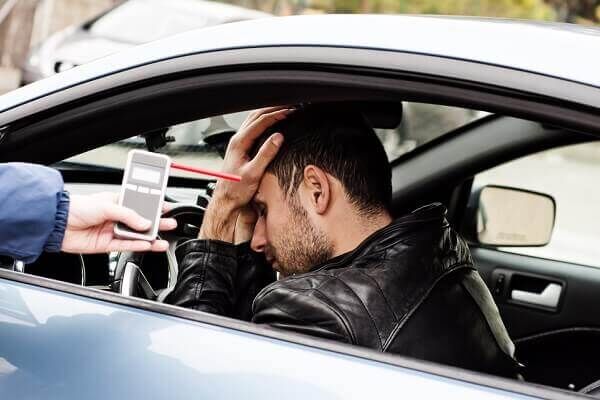
Drunk driving accidents often lead to severe injuries to drivers and passengers involved in the collision. For the driver who was intoxicated, that accident will not only result in a DUI citation, potential jail time, and fines, but it might also lead to an injury lawsuit.
In most states, driving while under the influence and causing an accident is a felony DUI. This means the driver will be arrested. While they face criminal penalties and a potential conviction, the criminal case will not yield compensation for your injuries and financial losses. Therefore, you need to explore your options by meeting with an injury attorney and seeing if you qualify for compensation.
Holding Drivers Accountable for DUI Accidents in Everett
If you know the other driver was under the influence of drugs or alcohol, your chances of winning a lawsuit are much higher. Most accidents involving a DUI are subject to civil suits because the driver’s negligence is easier to prove than trying to prove simple negligence.
Civil Lawsuits for DUI Accidents versus the Criminal Process
A civil lawsuit is not the same as a criminal proceeding. In fact, these are two very distinct processes that the drunken driver will go through. A criminal prosecution protects the public from future drunken driving acts and serves as a deterrent to the public – making them aware of what will happen to them if they decide to drive intoxicated too. A drunken driver might face criminal prosecution even if they did not cause an accident or injuries.
Civil lawsuits for a DUI are different because they stem from injuries that were the direct result of the driver’s intoxication and accident. The victim of the crash (the plaintiff) files a lawsuit against the driver or their insurance company. When an intoxicated driver injures someone, the victim can recover damages that include:
- Costs of medical treatment
- Lost wages
- Property damage
- Economic damages
- Non-economic damages
Why Insurance Might Try to Settle Your Case Quickly
Insurance companies are always encouraged to settle outside of court because they know that going to trial means an unpredictable outcome and the possibility of paying more than they could settle for privately. After a drunken driving accident, the insurance company will contact you and try to get a settlement amount.
It is advisable that you do not take a settlement. Instead, you should speak with an attorney, Because if you settle, you will be required to sign an agreement that releases the driver and insurance company from any further liability. This means you cannot collect on future damages that might arise.
A personal injury attorney has the ability to adequately assess the compensation needs based on your injuries. The attorney will also be able to assess what may in the future including wages you may miss, future medical treatments, and disability.
Does a Criminal Conviction Prove My Case?
If the drunk driver is convicted of a DUI or pleaded guilty to a DUI in the criminal proceeding, you will have more leverage when it comes to settling your injury case. The insurance company will not take a case to court when there is a guilty conviction on the record because they know that it is more likely a jury will award a settlement.
If the driver is not convicted, that does not mean you will lose your claim. The laws of criminal procedure are more difficult than civil. In a criminal case, the prosecution must prove beyond a reasonable doubt that the driver is guilty of a DUI. In a civil case, you must show guilt using a preponderance of the evidence. Therefore, if your side has more evidence proving fault, then you can succeed in your case.
What Evidence Is Needed to Win a DUI Personal Injury Lawsuit?
If you are hit and injured by a drunken driver, the more evidence you gather, the better it will be for your case. Some of the evidence your attorney will need to acquire, while others you can gather on your own. Here is some of the evidence that you may be asked to acquire.
- Copies of Medical Records: Copies of your medical records from the time you first seek medical treatment up until you meet with an attorney are essential. These help prove that you suffered injuries, the extent of those injuries, procedures you have already received, and diagnostic scans showing those injuries.
- Copies of Medical Billing Statements: Any medical billing statements you have including Explanation of Benefits from your health insurance, receipts for out-of-pocket expenses, and other medical-related costs.
- Photographs: Photographs of the accident scene, your injuries, and the progress of your recovery are helpful in painting a picture not only for insurance claims adjusters, but also the jury.
- Police Report: A police report might state that the driver was intoxicated and have the breathalyzer and blood analysis results. It would also indicate whether the driver was arrested or cited at the scene of the accident and may also contain witness information.
Do You Need an Attorney?
You might assume that you have an easy civil case because the driver was arrested and convicted of a DUI. While the insurance company will certainly settle, it is unlikely that they will settle for the compensation you deserve. Insurance companies take advantage of victims who are trying to negotiate their settlement because they know that they do not have an attorney calculating future damages.
Statistically, insurers settle for higher amounts when an attorney is involved. And while you might lose some of your compensation to an attorney’s contingency fee, you still come out with more compensation than you would have if you negotiated alone.
Hire a Washington Injury Attorney Today
If you or a loved one was injured in a DUI accident, you could hold that driver accountable for their actions. Schedule a no-obligation consultation with an injury advocate today from Brett McCandlis Brown & Conner, PLLC.
Reach our team at 206-489-3231 or request an appointment online by filling out the contact form.


